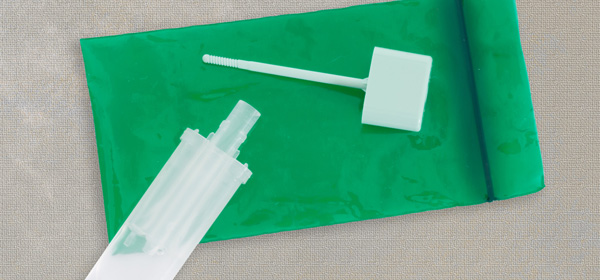In March, SBS World News presenter Anton Enus shared his experience of being diagnosed with and surviving bowel cancer in a bid to encourage Australians to have regular screenings.
Bowel cancer (also known as colorectal cancer) affects millions of people worldwide. It is the third most common type of newly diagnosed cancer in Australia, with one in 13 people being diagnosed each year.
In fact, Australia has one of the highest diagnosis rates in the world.
Each year, 14,962 Australians are told they have bowel cancer, including 1313 people under the age of 50. After lung cancer, bowel cancer is the second biggest cancer killer in Australia, claiming the lives of 4071 people each year. Prostate cancer is the third biggest cancer killer.
By 2020 it is predicted there will be 20,000 bowel cancer cases. Understanding the disease and catching it early is key to saving lives.
Here are a few facts about bowel cancer:
Your sex counts
About 55 per cent of people diagnosed are male.
Age matters, too
Bowel cancer risk increases with age, rising sharply and progressively from age 50. It is essential that after this age you undergo screenings every one to two years. Early detection is vital, as there are warning signs but no early warning signs.
Family history plays a part
For around 25 per cent of all bowel cancer cases there is a hereditary contribution or a link to family history.
Lifestyle choices affect your risk
Many lifestyle choices are directly linked to increased bowel cancer risk. Obesity not only increases your risk of having the disease by 30 per cent, it also increases the likelihood of failed treatment outcomes and complications. Smoking also increases your risk of developing and dying from this type of cancer. A recent American study found that patients with colon cancer who smoke were 14 per cent more likely to die within five years than patients who had never smoked.
Other risk factors include heavy alcohol use, lack of exercise and diets high in red and processed meats.
Warning signs
You should see your GP if you experience any of these symptoms:
- blood in the bowel movement, including in the toilet bowl or on the toilet paper
- unexplained weight loss
- persistent change in bowel habit
- severe abdominal pain.
Remember, you don’t have to experience all these warning signs to have bowel cancer. Additionally, experiencing one or two of these symptoms is not necessarily a cause for alarm, but if you feel something is wrong don’t wait to have it checked out.
Screening and diagnosis
Your GP may refer you to a gastroenterologist, who specialises in diseases of the gastrointestinal tract and liver. They will assess your predisposition to bowel cancer (or other diseases) by asking about your diet, lifestyle and family history. It may then be recommended that you undergo a screening test, such as a colonoscopy.
Once you are sedated for the colonoscopy procedure, the gastroenterologist inserts a thin, flexible tube to inspect the inner lining of your large intestine (rectum and colon). It is a low-risk, straightforward procedure that takes about 30 minutes.
Treatment
Unfortunately, fewer than 40 per cent of the cancers are detected early enough, and the harsh reality is the chance of surviving at least five years is just 68 per cent. This lags far behind the survival rates for common cancers such as melanoma and prostate, which have survival rates around 90 per cent.
If detected early, 90 per cent of bowel cancer cases can be successfully treated, so don’t delay your next screening.
Read more at bowelcanceraustralia.org
Related articles:
Free bowel cancer screening tests save lives
Tips to reduce bowel cancer risk
Are you pooing wrong?

